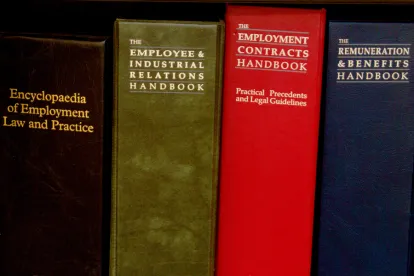On May 6, the Department of Labor (DOL) vigorously defended its revised and narrower interpretation of the “advice exception” in the Labor Management Reporting and Disclosure Act (LMRDA). In the final rule, the DOL announced on March 24 that it was changing its interpretation of the LMRDA’s “advice exception” and a number of law firms filed suit in the District Court of Minnesota (Labnet Inc. v. Perez, D. Minn. , No. 16-cv-844) seeking injunctive relief to stop the rule from going into effect. The plaintiffs argued the law is unconstitutional and unlawful and is an impermissible intrusion on the attorney-client relationship and state law and state bar ethical requirements. Similar legal challenges to the revised rule have been filed in other courts around the country.
The revision to the so-called “Persuader Rule” more narrowly interprets the statutes exemption for “giving or agreeing to give advice,” thereby expanding the number and type of relationships that will be subject to the LMRDA’s reporting requirements. As the proposed rule was pending, even the American Bar Association (ABA) took the position that proposed revisions would be harmful to the attorney-client relationship and may violate state law and state bar ethical rules. To be sure, no matter the outcome of these arguments, if the new rule remains as is there will most certainly be a lot of “line drawing” around where legal advice begins and ends (especially given the factual minutia that surrounds the National Labor Relations Board’s rules on legal vs. illegal union campaign literature/rhetoric and speeches). This will most certainly lead to the threat of increased litigation, and therefore the distinct possibility of a chilling effect for companies seeking such advice when facing down a union campaign.
On May 6, the DOL filed its response to the pending motion for injunction in the Labnet Inc. case giving considerable focus to the argument that the DOL’s interpretation of the advice exception will interfere with the attorney-client relationship. The DOL’s essential position is that nothing in the rule requires a violation of the attorney-client relationship, pointing out that Section 434 of the LMRDA provides that information “which was lawfully communicated to [an] attorney” does not have to be disclosed even under the revised interpretation of the rule. Additionally, the DOL argued that a state law or state bar ethic rules that might conflict with its interpretation of the “advice exception” and the disclosure requirements flowing from it would be preempted by federal law. There is obviously a lot of disagreement between the competing sides, and these issues will continue to play out as the challenges to the rule make their way through various courts around the country.




 />i
/>i

